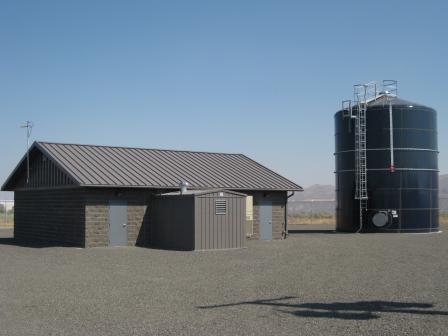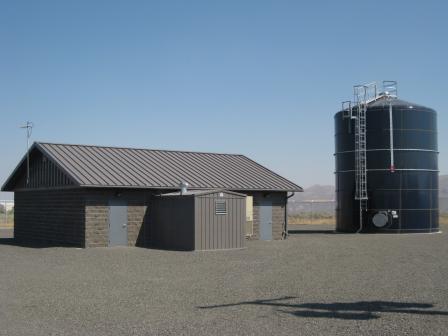
At a Landlocked Port, Water is Vital

Grant County, Washington, is not where you would expect to find a port.
Best known as the nation’s most prodigious potato-producing area, it is a landlocked county covered in dry grassland more than 150 miles from the Pacific Ocean. But port districts in Washington aren’t just for ships. Since 1958 they’ve been tasked by the state government with leading regional economic development. In fact, port districts are the only public agencies in the Evergreen State with economic development as their primary purpose.
One of the ways they fulfill their mission is by building facilities to attract and retain businesses willing to reinvest in the community.
“I take a lot of pride in us getting the most bang for the buck,” explains Alan Schrom, one of three elected commissioners of Grant County’s Port of Royal Slope a port located in the small central Washington town of Royal City. “We build a lot of infrastructure.”
For Schrom, who formerly worked as an engineer with the Bureau of Reclamation, economic development is a family affair. His father served as a commissioner before him, and Schrom’s mother was the port district’s first professional manager.
While Royal Slope will never be visited by a cruise ship or container vessel, water is still of vital concern. In the early 2010s it became clear that existing water support infrastructure was unable to accommodate commercial growth at the port’s Saddle Mountain and Hiawatha industrial parks.
“We operated under a one well system and had experienced two pump failures,” recalls Cathy Potter, the port’s director. “We knew this was not a good system that companies could rely upon. It wasn’t going to bring business to the port.”
In 2011, the Economic Development Administration (EDA) responded to that unmet need by awarding the Port of Royal Slope a $1.4 million grant through the Economic Adjustment Assistance program (PDF) to fund water system improvements at the port’s industrial parks. Increasing the reliability and resiliency of Royal Slope’s water supply has allowed Schrom, his fellow commissioners, and port staff like Potter to focus on what they do best: attract business and jobs to Grant County.
“It’s just been such a blessing and a weight off our shoulders,” says Potter.
Due in part to EDA funding, the economy in southern Grant County has boomed. New and expanding business at the port’s two industrial parks have created more than 275 jobs and generated $19 million in private investment. An impressive achievement in an area with less than 6,000 residents.
Meanwhile, growth and development show no signs of slowing. The Port of Royal Slope recently acquired and reactivated an unused, 26-mile stretch of rail track to connect Hiawatha Industrial Park with a BNSF Railway interchange, helping increase market accessibility for the park’s tenants.
EDA’s Economic Adjustment Assistance program provides a wide range of technical, planning, and public works and infrastructure assistance to regions experiencing adverse economic changes due to changing trade patterns and other factors. To learn more, and to see how others are using EDA grants to support local economic development, visit EDA’s website.
